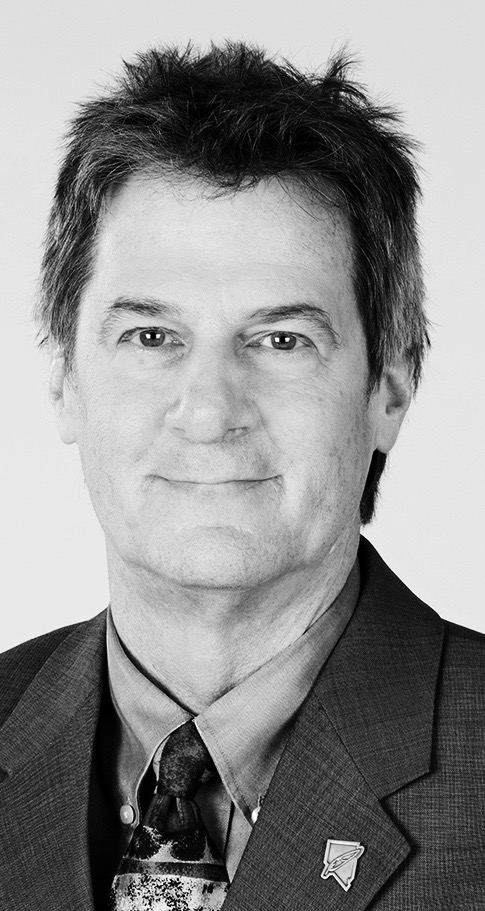Two recent rulings on the East Coast confirmed the ability of the public to take videos of police and to access the videos that police take on their body-worn cameras.
Both help affirm that police videos are public record — as Nevada’s statute clearly states when it comes to body-cams.
Legislation this year expanded the use of body cams for police in Nevada, but the principle was established in 2015 with Sen. Aaron Ford’s bill that created Nevada Revised Statute 289.830, which reads:
Any record made by a portable event recording device pursuant to this section is a public record which may be:
(a) Requested only on a per incident basis; and
(b) Available for inspection only at the location where the record is held if the record contains confidential information that may not otherwise be redacted.
I get asked occasionally about the two qualifiers there — “per incident basis” and “if the record contains confidential information.”
I was part of a working group who arrived at that language — mainly police, prosecutors, defenders, the ACLU and me — along with Ford, and it was a practical compromise.
First, police wanted to limit the potential costs of responding to broad requests for records. It would be impractical and expensive, they argued, to provide all of Officer Jones’s video for the past month, for example, or all DUI stops in the past year. It was reasonable to require that a public-records request for police video specify the time and place.
Second, there was considerable discussion of how to protect the privacy of people who were incidentally recorded by a police camera, especially if they were kids. The ACLU brought in the legitimate concern of how police may use video to identify people at demonstrations or political gatherings. Others were worried about the privacy of families when officers enter a home. I often use the simple example of a police officer asking a guy on the street for some ID, and he holds up his Social Security card.
In some of those situations, the video could be edited, or images redacted, to account for a legitimate need to protect confidentiality. Nevada statutes already cover specific exemptions to protect personal identifying information. In other instances, though, it might be nearly impossible — or extraordinarily expensive — to redact the video.
Hence, the compromise. As a public record, the video could be viewed. But a copy — a video that could be posted on YouTube, or anywhere else — would become a matter of judgment over the potentially confidential information it shows. I see it as the first step in a negotiation, if necessary, for public release of the video.
Still, the most important phrase in the statute is that such a video “is a public record.”
That’s not necessarily the case in other states, although an important ruling this week in New Jersey upheld that principle there. Here are details from out colleagues at the New Jersey Press Association:
On Tuesday, the New Jersey Supreme Court unanimously ruled that dashboard video of fatal encounters with police should be released in most cases as a matter of public interest.
This crucial ruling reversed a lower court decision which had severely curtailed public access to video and other police records. The court ordered local and state law enforcement to release video and other records from a 2014 police chase and fatal shooting to North Jersey Media Group (NJMG), publisher of NJPA members The Record, www.NorthJersey.com, and a large group of community weekly newspapers.
NJPA General Counsel Tom Cafferty prepared the amicus brief which listed 18 amici including NJPA, Gannett Co., Inc., Advance Publications, Inc., and Reporters Committee for Freedom of the Press. Transparency advocates are hailing this as a most significant victory; one that was essential for the public’s right to know.
Cafferty and his associate Lauren James-Weir have prepared this memo for NJPA members detailing the outcome.
“Footage from police cameras without accessibility to the public is nothing more than surveillance,” Ed Barocas, legal director for the American Civil Liberties Union New Jersey, said in a statement. “Today, the New Jersey Supreme Court acknowledged the crucial role that transparency plays in holding police accountable.”
The other important ruling confirmed the public’s right to record the actions of police in a public setting.
The federal Appeals court reversed a lower-court decision that, rather preposterously, had asserted you would need to announce the reason you were recording the police. It had been one of the least comprehensible rulings I’d seen in awhile.
One more thing about Nevada’s statue: Some wondered if the 15-day retention period for videos, an amendment adopted with this year’s bill, was too short. Keep in mind, though, that any video being used in a criminal case would be considered evidence and couldn’t be destroyed until the conclusion of the case. All that would be erased after 15 days would be videos showing routine activity. If you do want such a video, just make sure your request is in before the 15 days are up.
 Nevada Press Association The best in Nevada journalism since 1924
Nevada Press Association The best in Nevada journalism since 1924
